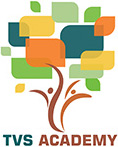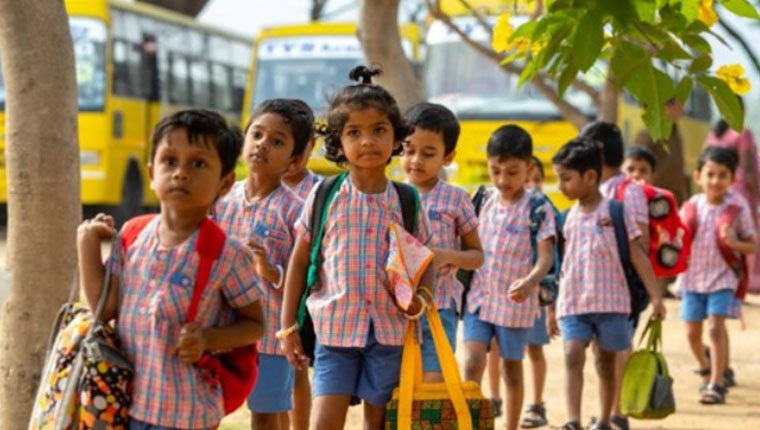
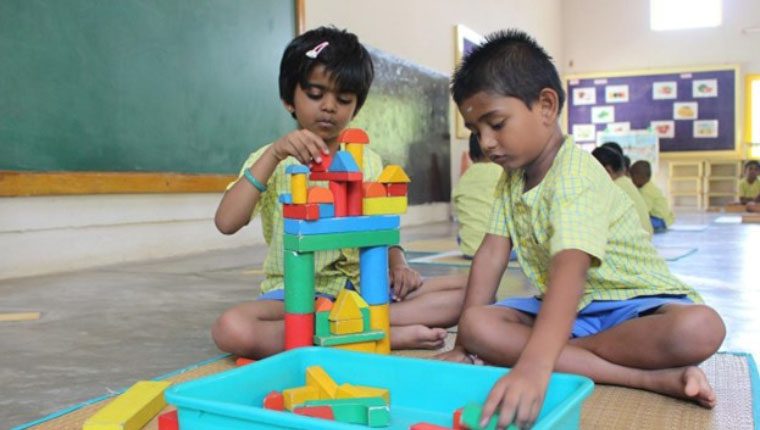
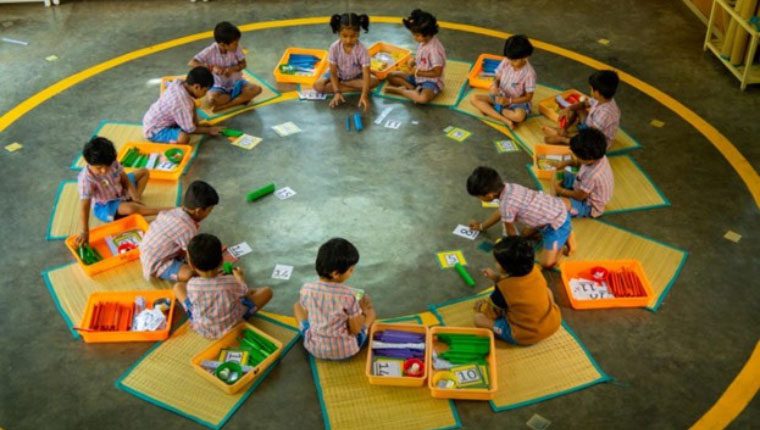
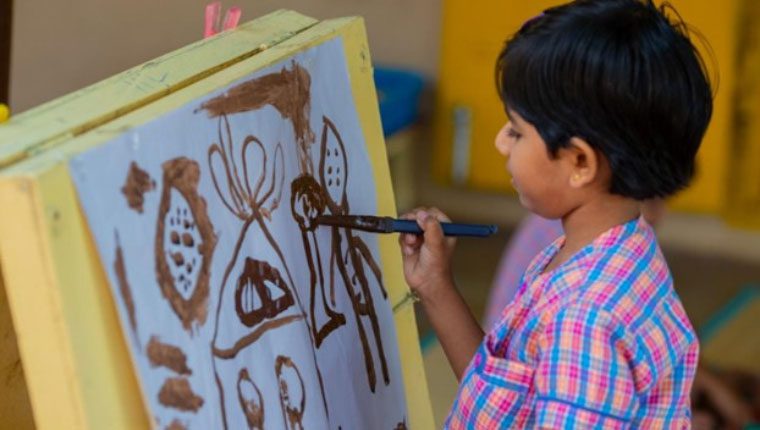
EARLY CHILDHOOD PROGRAM
The Early Childhood Program includes the following grades M1, M2 & GRADE 1. The program enables children develop self-confidence, build emotional maturity, cultivate independence in daily life, attain positive social skills, and nurture an enthusiasm for learning.
The program enables children acquire and strengthen skills in –
- Social Development
- Physical Development
- Sensory and Emotional Development
- Cognitive Development
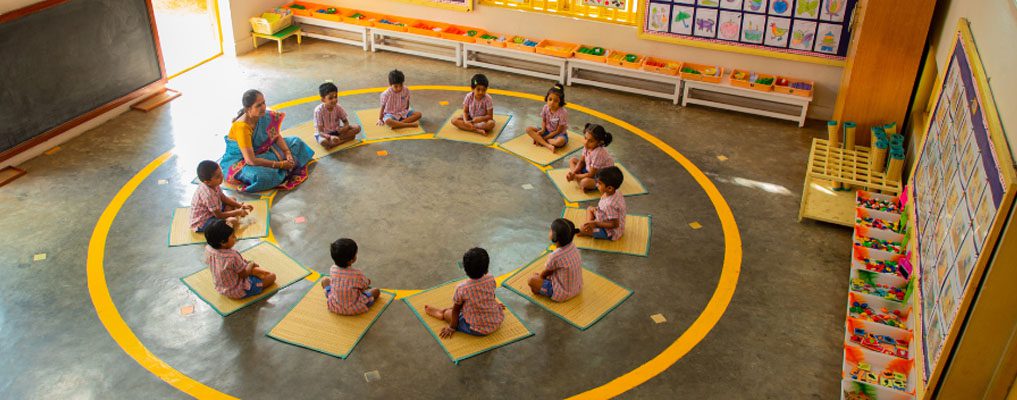
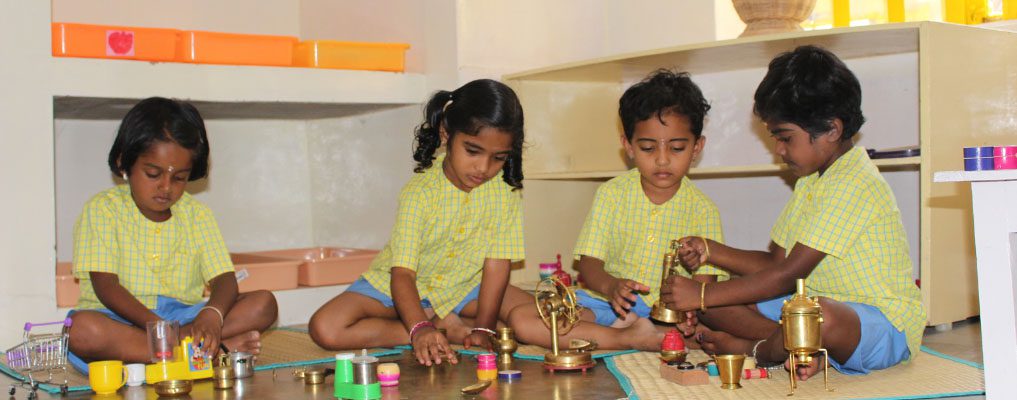
Social Development
Children learn to relate to adults and other children, both at home and school. They learn the courtesies and etiquette of everyday life and are encouraged to share their thoughts and feelings with their peers and their teachers in a mindful way. The children learn to become independent, as they learn to take care of their everyday needs, make choices in their activities, materials and the spaces where they work.
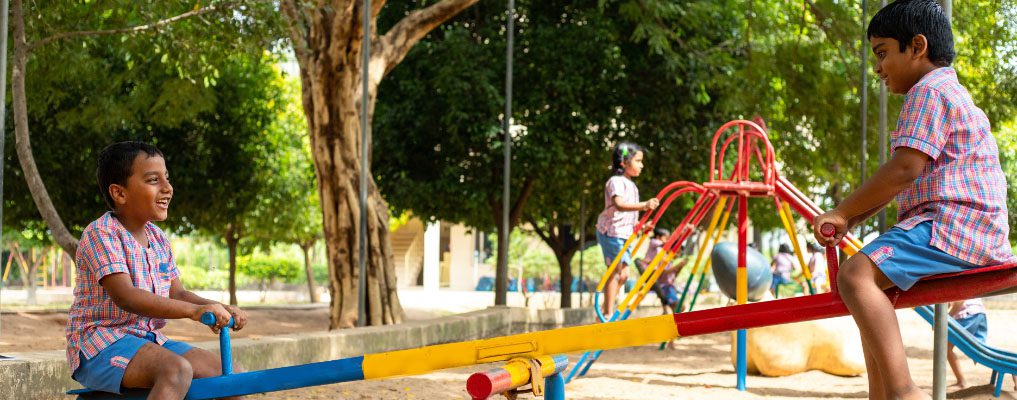
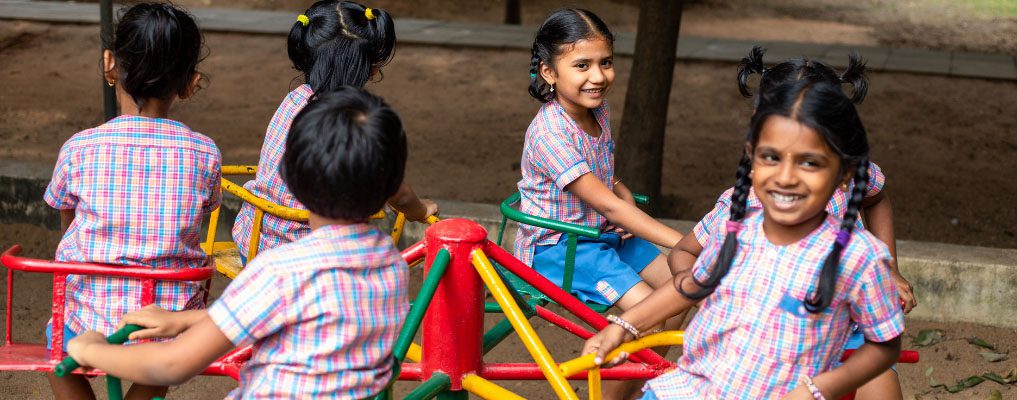
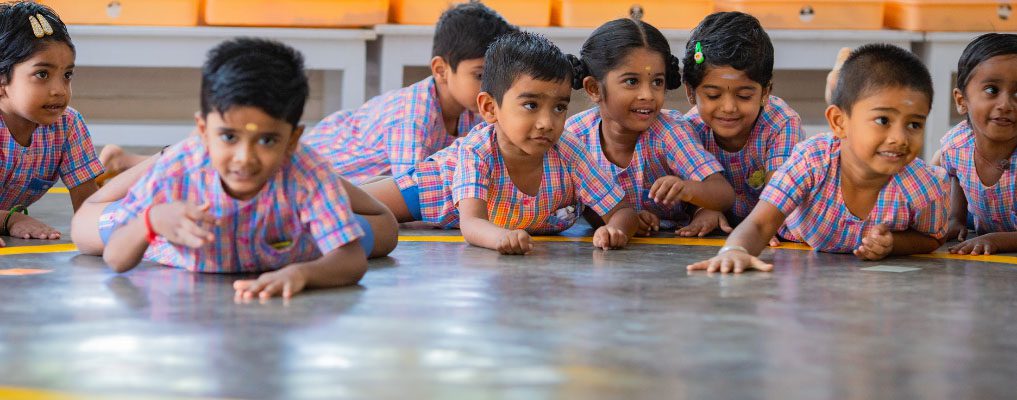
Physical Development
Children build motor skills and coordination, strength and flexibility through Exercises in Practical Life, Sports, Yoga and Gym. They learn about posture, movement, eye–hand and muscle coordination and breathing. They enjoy games and sports, and they come to realise that they need to follow rules and processes for harmonious participation.
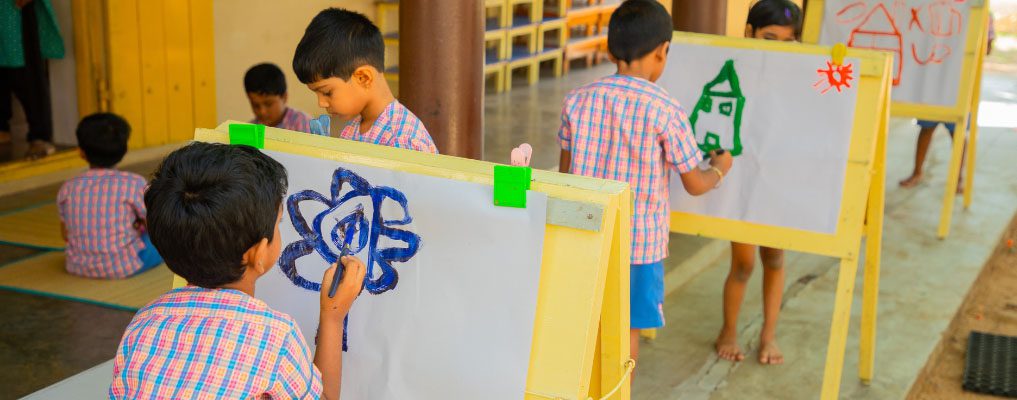
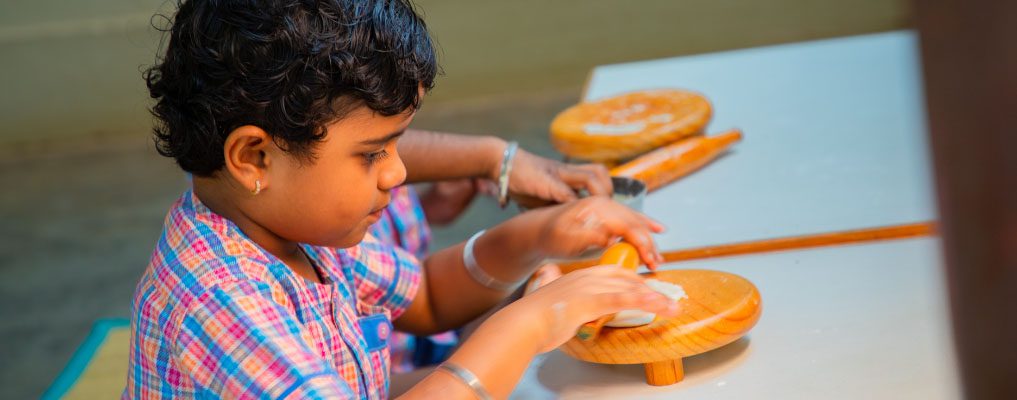
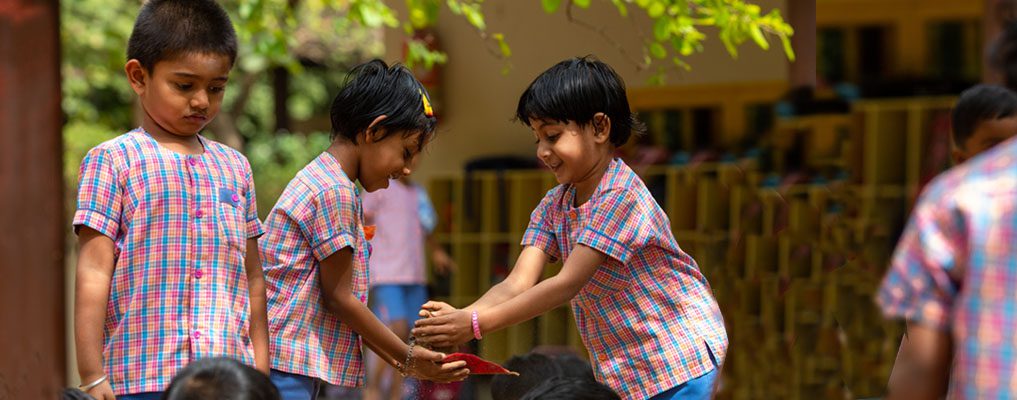
Sensory And Emotional Development
Through the use of sensorial material, children refine their sense of sound, colour, texture, shape, size, and smell. Daily nature walks encourage children to feel and sense the natural world. Through their nature walks, story telling and circle time, children share their feelings, thoughts and emotions, their perceptions of events, objects, people and the world around them. Children paint, colour with crayons, work with clay, collect interesting seeds and leaves, trace the shape and form of stones and arrange found objects into collages.
Children develop their innate sense of rhythm and tune as they sing a song and move their bodies to the beat of the songs. In the early years, children are fascinated by stories with animal and human characters, tales from different cultures and delighted when these are accompanied by puppets or music. Children in higher pre-primary years are encouraged to read books and relive the tales through costume and drama.
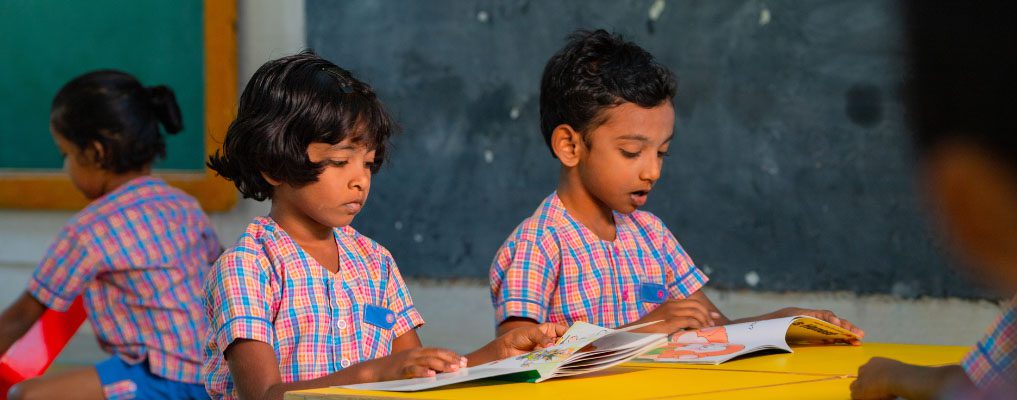
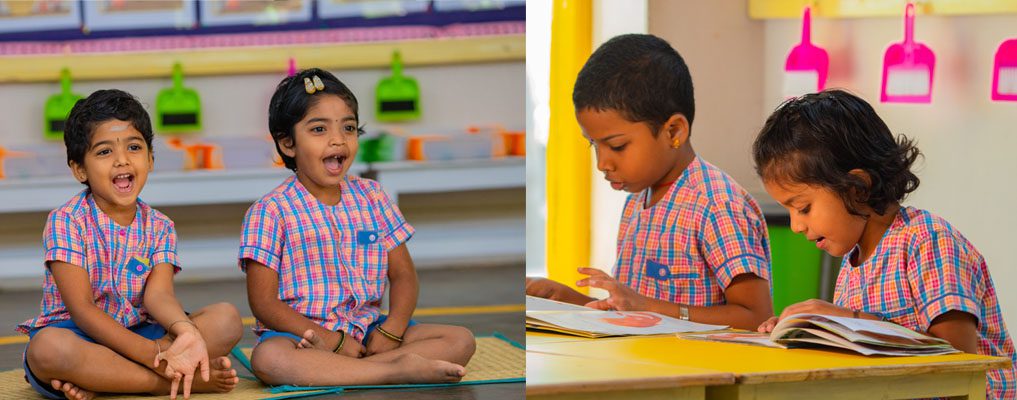
Cognitive Development
Through materials designed to develop the spatial and numerical sense, children learn to sort, sequence and identify patterns. They begin to question, think and process information. The various activities in number work and computation are designed to help them question and solve problems with the help of specially designed manipulables. They learn the basic sounds and letters and are able to decode words and gradually learn to read simple texts; they begin to use appropriate language to communicate their needs and express their thoughts and feelings.
